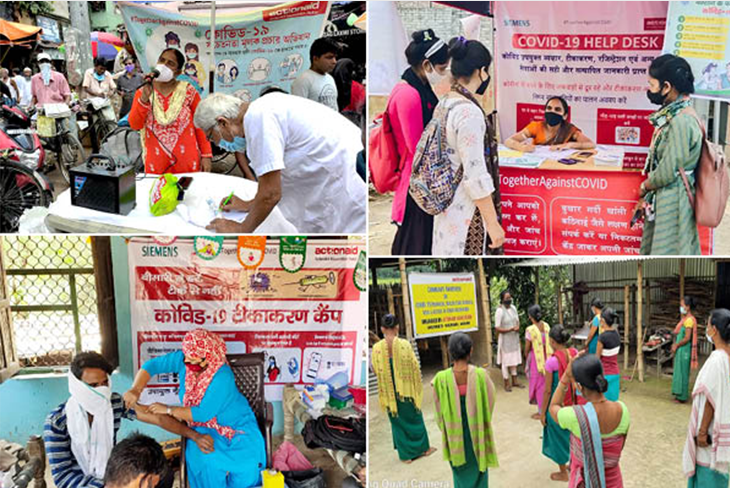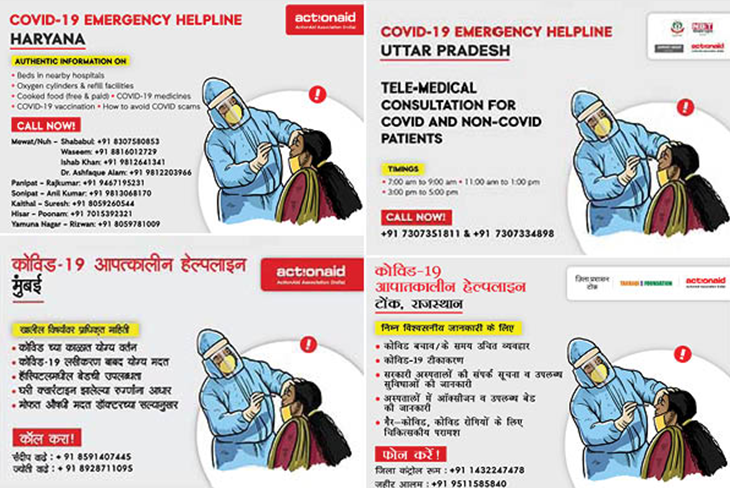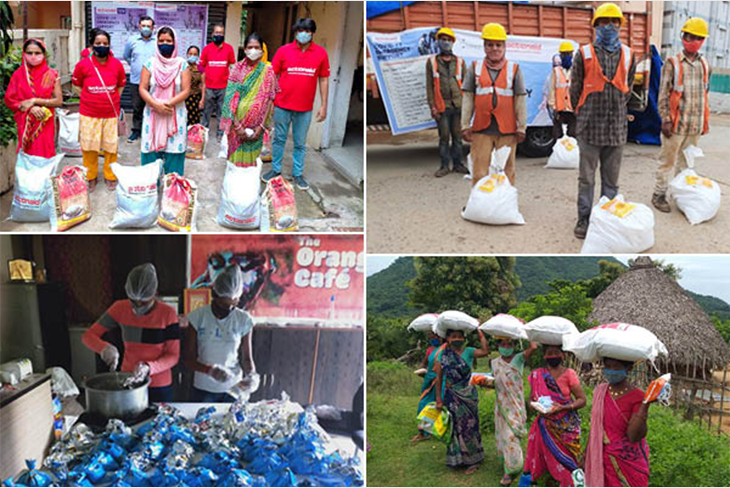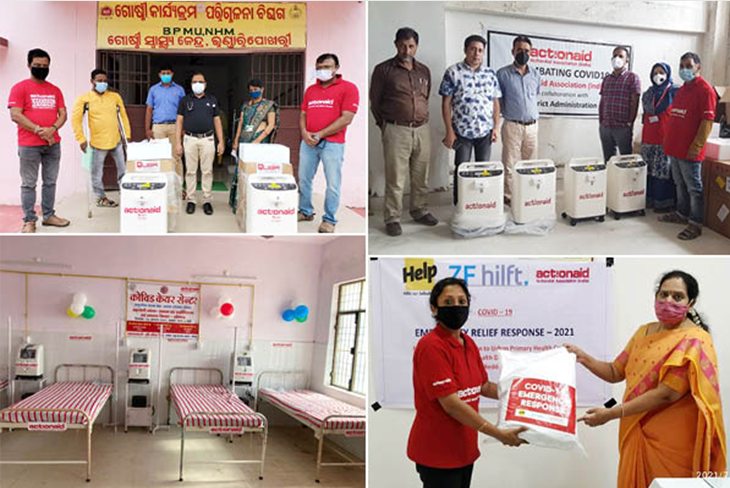As in the first wave of COVID-19, during the second wave too, our teams were on the ground, this time actively supporting gaps in healthcare. We worked with community volunteers, leaders and social organisations; the solidarity support from individuals, foundations and corporate bodies; and the collaboration of administration, Primary Health Centres (PHCs), Community Health Centres (CHCs) and public hospitals.
Recognising oxygen as a critical emergent need, we handed over more than 6,700 oxygen concentrators to CHCs and hospitals across various states. As part of our efforts to strengthen health infrastructure, we also set up an oxygen plant at the 50-bed COVID Care Centre in Noida Stadium. Besides, we supported the district administration in Bahraich, Uttar Pradesh, to set up an oxygen plant at Maharishi Balark Hospital. We also handed over three non-invasive ventilators to Techno DAMA Hospital in Kolkata, West Bengal. In Patna, Bihar, we supported the renovation of the 70-bed paediatric ward of Indira Gandhi Institute of Medical Sciences to make it child-friendly. This move would help ease stress among children recovering from COVID infection and other illnesses.
In Pen in Raigad, Maharashtra, we ran a mobile van clinic across five tribal hamlets. A much-needed initiative for the remote tribal communities of the district, this clinic is helping address not just the COVID infection but other ailments too. Similar mobile medical care services were run across several locations of Hyderabad, Telangana, during the peak of the pandemic this year, together with the district administration.
Our teams played an instrumental role in setting up COVID Care Centres (CCCs) in the most backward districts of the country that lack quality medical infrastructure. As of July 31, we had facilitated 23 CCCs across Andhra Pradesh, Bihar, Gujarat, Odisha, Rajasthan and Uttar Pradesh. During this devastating second wave of the pandemic, we also extended support to several healthcare institutions by supplying oximeters, thermometers, PPE kits, sanitiser, face shields, surgical masks and gloves. In Odisha, our volunteers supported five CCCs in the Kandhamal district; they helped in food distribution, ensured regular sanitisation, and conducted health check-ups and counselling.

COVID-19 Awareness Drives and Vaccination
Recognising the need to generate awareness on COVID-appropriate behaviour and the importance of vaccination, our teams tirelessly sensitised the communities, particularly in rural areas and remote locations. Using local dialects and jingles, our community-based volunteers across states carried messages on pandemic-related dos and don’ts through autorickshaws, sachetanata rathas and even bullock carts and boats. Given the vaccine hesitancy noticed in some communities based on rumours and unscientific beliefs, there was an urgent need to bust related myths. So our teams across the length and breadth of the country worked towards urging people to get vaccinated.
Our sensitisation drives on COVID-appropriate protocols and on the need for vaccination could reach more than 18 lakh people in 163 districts. We also helped several community members get registered for vaccination. Through our efforts, we could facilitate access to vaccination for 1,38,154 people from the most marginalised communities.

COVID-19 Helpdesks
In the immediate aftermath of the outbreak of the second wave, we had set up several COVID-19 emergency helplines. Through 86 helpdesks catering to a total of 92 districts, we provided callers with the information they urgently required, including contact numbers of nearby hospitals and the real-time status of availability of beds, oxygen cylinders and critical medicines. We received more than 37,000 phone calls through these helplines, and our teams were on their toes to provide prompt and authentic information to all.
We also informed callers about protocols related to quarantining, local ambulance services and cooked food services. In addition, some helplines, run together with medical professionals, provided tele-medical consultation and psycho-social counselling to COVID and non-COVID patients.

Relief Material and COVID Care Equipment to the Most Vulnerable
To ensure adequate nutrition and health for those dependent on the informal economy, we provided dry rations, comprising cereals, pulses, oil and spices, to 44,153 such families across 101 districts of the country. We also distributed more than 78,000 nutritious cooked meals in 16 districts.
In addition, we reached out to 37,898 households across 57 districts with sanitation kits comprising masks, soaps, sanitiser, detergent and sanitary napkins to ensure their access to essential safety material amid the pandemic. We also supported several volunteers and other frontline health workers with PPE kits, face shields, masks and gloves.
* All data on COVID-19 response/outreach as of August 15, 2021




